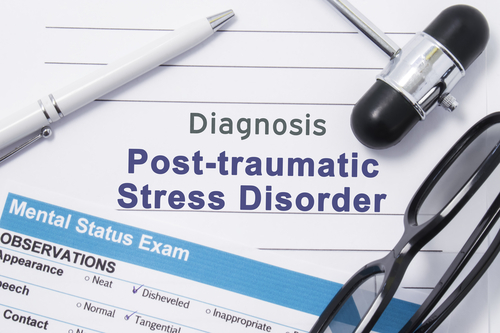Gut microbiome linked to PTSD: Study
IANS Oct 30, 2017
Intestinal bacteria could hold clues to whether or not an individual will develop post-traumatic stress disorder (PTSD) after experiencing a traumatic event, finds a study.

PTSD is a serious psychiatric disorder that can develop after a person experiences a life-threatening trauma.The findings showed that individuals with PTSD had significantly lower levels of a combination of three bacteria -- Actinobacteria, Lentisphaerae and Verrucomicrobia -- compared to trauma-exposed control groups. Individuals who experienced trauma during their childhood also had lower levels of two of these bacteria Actinobacteria and Verrucomicrobia."Individuals who experience childhood trauma are at higher risk of developing PTSD later in life, and these changes in the gut microbiome possibly occurred early in life in response to childhood trauma," said lead researcher Stefanie Malan-Muller, postdoctoral student at the Stellenbosch University, South Africa.
One of the known functions of these bacteria is immune system regulation, and researchers have noted increased levels of inflammation and altered immune regulation in individuals with PTSD. "We therefore hypothesise that the low levels of those three bacteria may have resulted in immune dysregulation and heightened levels of inflammation in individuals with PTSD, which may have contributed to their disease symptoms," Malan-Muller added, in the paper published in the journal Psychosomatic Medicine.However, researchers are unable to determine whether this bacterial deficit contributed to PTSD susceptibility, or whether it occurred as a consequence of PTSD.
Factors influencing susceptibility and resilience to developing PTSD are not yet fully understood, and identifying and understanding all these contributing factors could in future contribute to better treatments, especially since the microbiome can easily be altered with the use of prebiotics (non-digestible food substances), probiotics (live, beneficial microorganisms), and synbiotics (a combination of probiotics and prebiotics), or dietary interventions, the researchers suggested.
-
Exclusive Write-ups & Webinars by KOLs
-
Daily Quiz by specialty
-
Paid Market Research Surveys
-
Case discussions, News & Journals' summaries